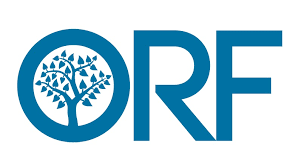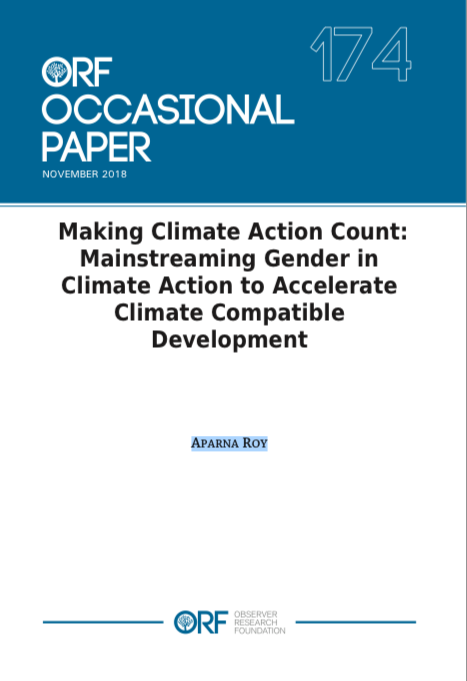Location
New Delhi — 110002, INDIA Phone: +91 011 43520020, 30220020 Fax: +91 011 43520003, 23210773 Email: contactus@orfonline.org
Set up in 1990, ORF seeks to lead and aid policy thinking towards building a strong and prosperous India in a fair and equitable world. It helps discover and inform India’s choices, and carries Indian voices and ideas to forums shaping global debates. ORF provides non-partisan, independent analyses and inputs on matters of security, strategy, economy, development, energy, resources and global governance to diverse decision-makers (governments, business communities, academia, civil society). ORF’s mandate is to conduct in-depth research, provide inclusive platforms and invest in tomorrow’s thought leaders today.
ORF began its journey in 1990 at the juncture of ideation tempered by pragmatism. During the period of India’s transition to a new engagement with the international economic order, several challenges emerged, evoking a need for an independent forum that could critically examine the problems facing the country and help develop coherent policy responses. ORF was thus formed, and brought together, for the first time, leading Indian economists and policymakers to present the agenda for India’s economic reforms.
Propelled by the process of reforms initiated in the 1990s, ORF, over the past 25 years of its existence, has effectively narrated and participated in India’s story as the country has acquired an unmistakable global footprint. From primarily looking inward and engaging with domestic reforms, to gradually forging global partnerships, ORF today plays a seminal role in building political and policy consensus that enables India to interact with the world.
As new powers re-emerge onto the global stage, existing systems face challenges of agreeing on a new set of rules to control and regulate the new frontiers of space, the oceans, the internet and the human mind. The world continues, also, to navigate persisting concerns related to security and strategy, economy and development, energy and resources. As India begins to play a larger role in the 21st century, ORF continues to push normative boundaries, bring new ideas into the policy discourse and provide a platform to a new generation of thinkers. It is supported in its mission by leading intellectuals, academicians, policymakers, business leaders, institutions and civil society actors.
ORF’s aim is to encourage voices from all quarters, geographies and gender, both those that fallin and those that question dominant narratives. It is this plurality of thought and voice – in a country of over a billion individuals – that ORF seeks to carry abroad, while simultaneously bringing contemporary global debates to India.
The Mandate
ORF seeks to lead and aid policy thinking towards building a strong and prosperous India in a fair and equitable world. It sees India as a country poised to play a leading role in the knowledge age – a role in which it shall be increasingly called upon to proactively ideate in order to shape global conversations, even as it sets course along its own trajectory of long-term sustainable growth.
ORF helps discover and inform India’s choices. It carries Indian voices and ideas to forums shaping global debates. It provides non-partisan, independent, well-researched analyses and inputs to diverse decision-makers in governments, business communities, and academia and to civil society around the world.
Our mandate is to conduct in-depth research, provide inclusive platforms and invest in tomorrow’s thought leaders today.
Members:
Resources
Displaying 1 - 3 of 3Making Climate Action Count: Mainstreaming Gender in Climate Action to Accelerate Climate Compatible Development
The first universal, legally binding global climate accord signed at the 21st session of the Conference of Parties (COP) in Paris in 2015 committed to long-term goals for “holding the increase in the global average temperature to well below 2°C above pre-industrial levels and to pursue efforts to limit the temperature increase to 1.5°C above pre- industrial levels.” However, as world leaders prepare for the Facilitative Dialogue (FD) ahead of COP 24 in December 2018, there is a realisation that fulfilling the climate pledge and ensuring a rapid transition to low- carbon and climate-resilien
Making Climate Action Count: Mainstreaming Gender in Climate Action to Accelerate Climate Compatible Development
The first universal, legally binding global climate accord signed at the 21st session of the Conference of Parties (COP) in Paris in 2015 committed to long-term goals for “holding the increase in the global average temperature to well below 2°C above pre-industrial levels and to pursue efforts to limit the temperature increase to 1.5°C above pre- industrial levels.” However, as world leaders prepare for the Facilitative Dialogue (FD) ahead of COP 24 in December 2018, there is a realisation that fulfilling the climate pledge and ensuring a rapid transition to low- carbon and climate-resilien
Securing Property Rights in India through Distributed Ledger Technology
India registered rapid economic growth over the past couple of years, with the GDP growing 7.6 percent in 2015-2016. While economic activity remains buoyant, however, the country still has a long way to go. The government must capitalise on the current economic momentum and use it to accelerate its reform agenda. One of the areas requiring regulatory attention is the property market. Despite a push for reform through the Digital India Land Records Modernization Programme (DILRMP), India’s current land title system remains plagued with deficiencies.


